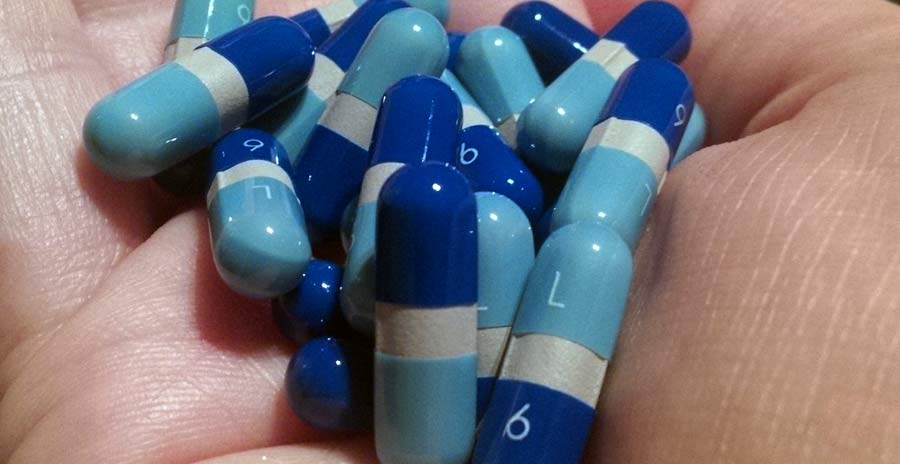
Research shows Britons misuse non-prescription medicines. Creative Commons Attribution-ShareAlike 4.0 International Licence
One in five patients misuse non-prescription medicines and almost 40 per cent don’t always read instructions, new research has found.
In the first such survey of consumers, they admitted to knowing the potential risks of dependence on non-prescription medicines but not knowing where to turn if they had a problem.
And the researchers said some customers of the medicines in the United Kingdom might not realise they are misusing the products if they don’t get proper advice from pharmacists or read instructions themselves.
Commenting on the research, the Royal Pharmaceutical Society said abuse of such medicines was “worrying”.
With a growing push to treat lesser health issues outside of the National Health Service (NHS) in the UK, scientists wanted to survey the public, for the first time, about their misuse, abuse or dependence on easily available medicines.
Researchers at the University of Aberdeen sent questionnaires to 1,000 people around the UK on the edited electoral register, ranging in age from 18 to 92, asking them about medicine use.
Of the 43.4 per cent who replied, 19.3 per cent misused non-prescription medicines or NPMs at some point in their lifetimes, 4.1 per cent abused NPMs, and 2 per cent were dependent. Those who were younger or had a long-term condition requiring NPMs, or those who had used illegal drugs or legal highs, were more likely to report abuse or misuse.
Much of the previous research on this subject has focused on what pharmacists perceive as misuse or abuse by customers.1
Most of those surveyed (71.3 per cent) were aware of the potential to become dependent or addicted to NPMs, and one in 10 said they personally knew someone who had been dependent or addicted. Most often, they were analgesics, both with and without codeine, stop smoking products, sleep aids, cough and cold remedies and others.
Past estimates referred to in the study show there are 57 million GP consultations costing the NHS £2 billion a year each year for minor ailments, many of which could be addressed by pharmacies.
The study, published in the Journal of Public Health,2 said: “There is a drive to encourage and enable self-care in the UK through the use of NPMs for minor ailments. Pharmacy customers who make direct product requests by name are less likely to be questioned by pharmacy staff than customers/patients seeking advice regarding the management of conditions or symptoms.
“In our study, individuals who were or had been dependent were generally rarely or never questioned by pharmacy staff about their purchase. More active engagement may be needed by both pharmacy personnel and patients/customers during their consultations, particularly when requests are made for NPMs associated with misuse, abuse and dependence, to explore the need for referral to an appropriate source of support/treatment.
“Respondents’ acknowledgement of the potential for NPMs to lead to dependence was high and suggests that there is public awareness that NPMs are associated with risks. However, a considerable proportion of individuals do not always read the directions for use and therefore alternative, or additional, methods of providing important information on medicine risk should be considered.”
PhD student Niamh Fingleton,3 who led the study, said there was a risk with non-prescription medicines, but it depended on if the misuse was a one-off or frequent.
She said: “We have conducted interviews with the people who have been dependent and one of the problems they had, once they realised they had a problem they weren’t really sure what to do about it.
“They would mention that when you go into a pharmacy, there’s lots of leaflets about various health conditions, but they couldn’t see anything about ‘Are you dependent on over-the-counter medicines’ or what you could do about it.”
Ms Fingleton added: “I think there could be more public awareness amongst the general public, but I do think there’s more of a role that pharmacists could play.”
She pointed out customers could easily buy paracetamol or ibuprofen in shops where no pharmacists were on hand.
Sandra Gidley, of the Royal Pharmaceutical Society,4 said they welcomed the research.
In an email statement, she said: “Abuse of over-the-counter medicines is worrying and the RPS provides a variety of support to help pharmacists and their teams to identify and help patients experiencing addiction.
“However, it is a challenging issue as some individuals who become addicted can hide their problem well, and the lack of access to shared patient health records means there’s no way of knowing who is buying what from which pharmacy.
“It’s important that the public are aware of the risks of abuse of over-the-counter medicines and if they are experiencing problems ask their pharmacist for advice.”
- Misuse is defined as using a medicine in an incorrect dosage or for longer than recommended. Abuse is to achieve a non-medical benefit, such as mind-altering effects or weight loss. And dependence or addiction is anyone struggling to stop or change the use of the medicines. ↩
- Niamh A. Fingleton, Margaret C. Watson, Eilidh M. Duncan, and Catriona Matheson, “Non-prescription medicine misuse, abuse and dependence: a cross-sectional survey of the UK general population“, J Public Health first published online February 2, 2016. ↩
- Niamh Fingleton university profile page. ↩
- RPS website. ↩

